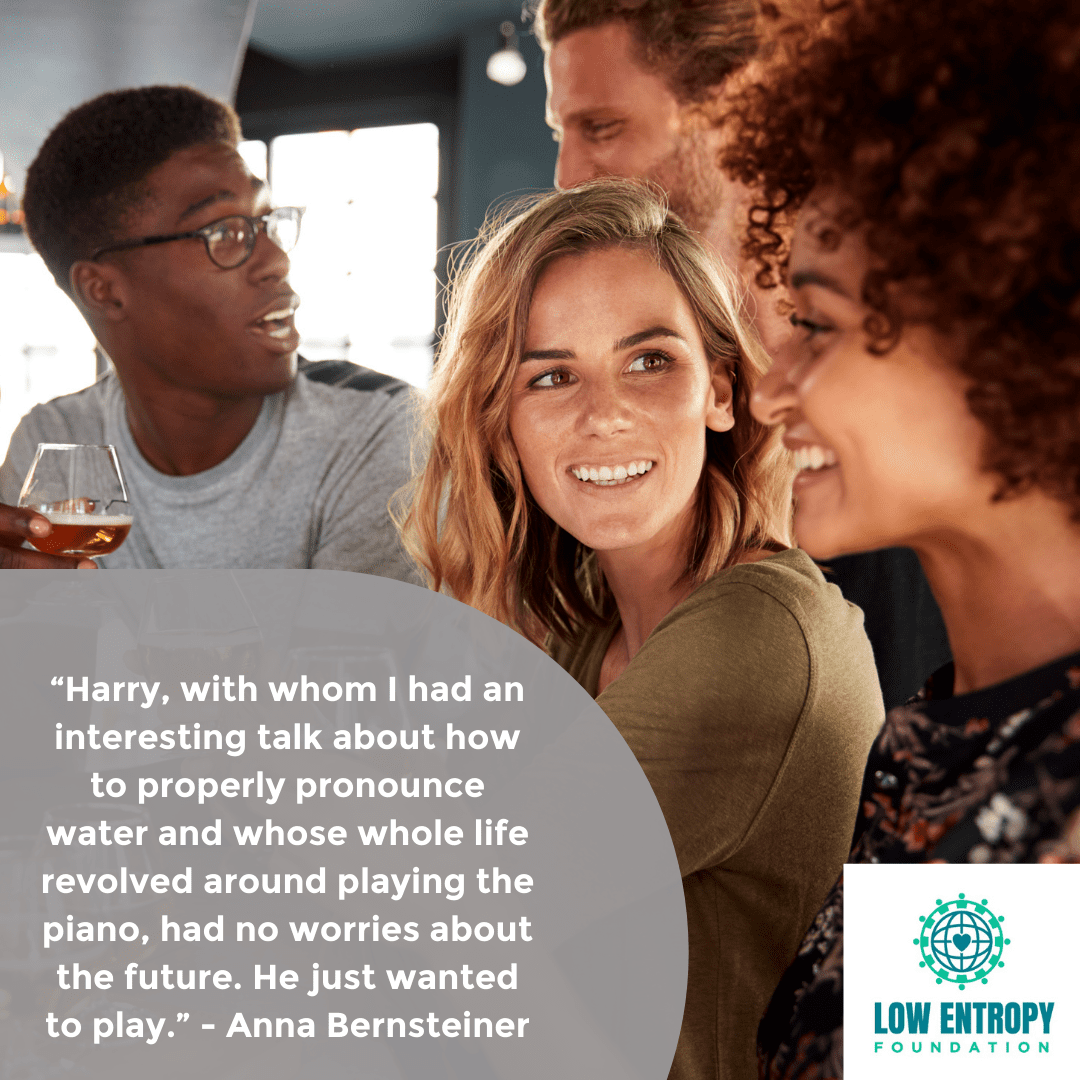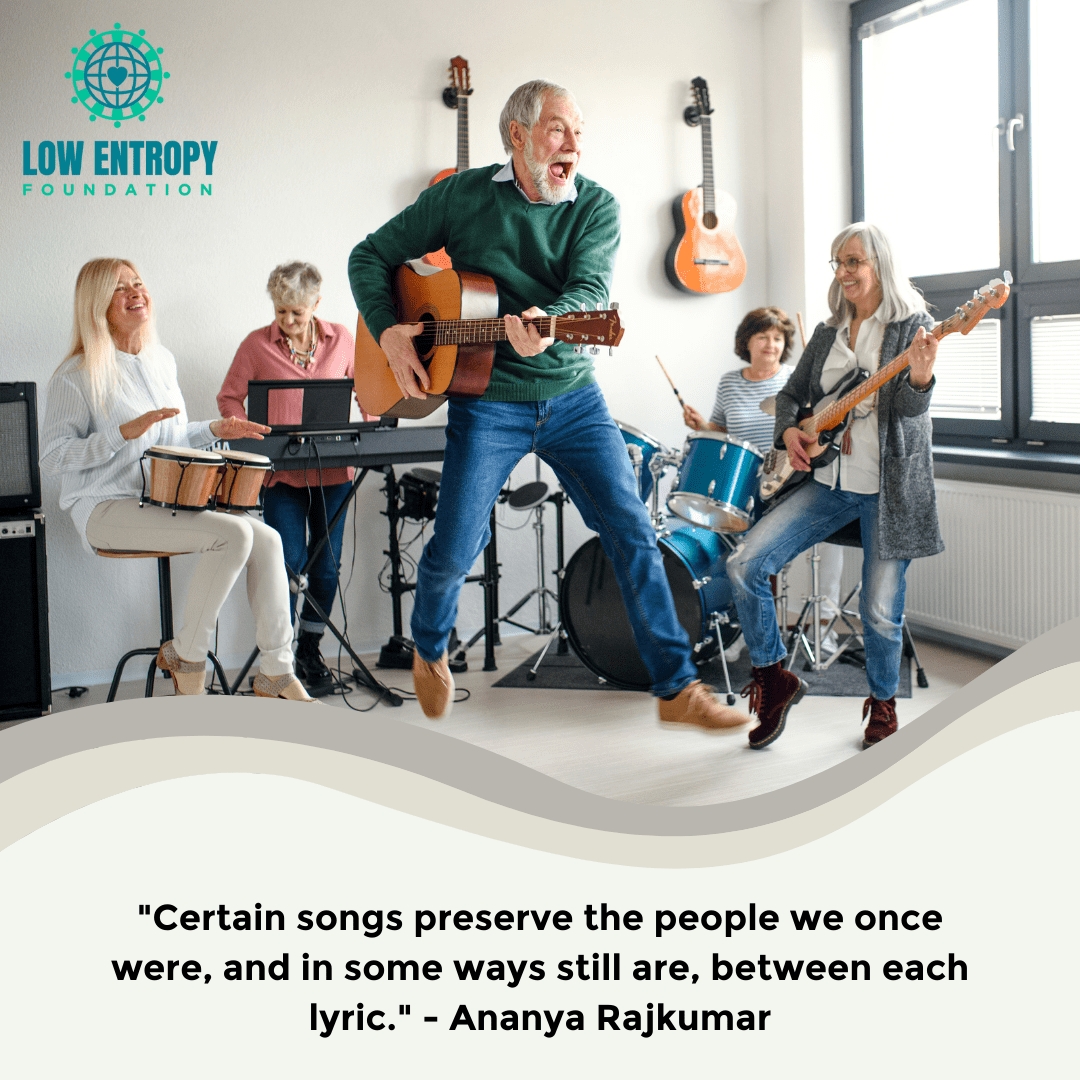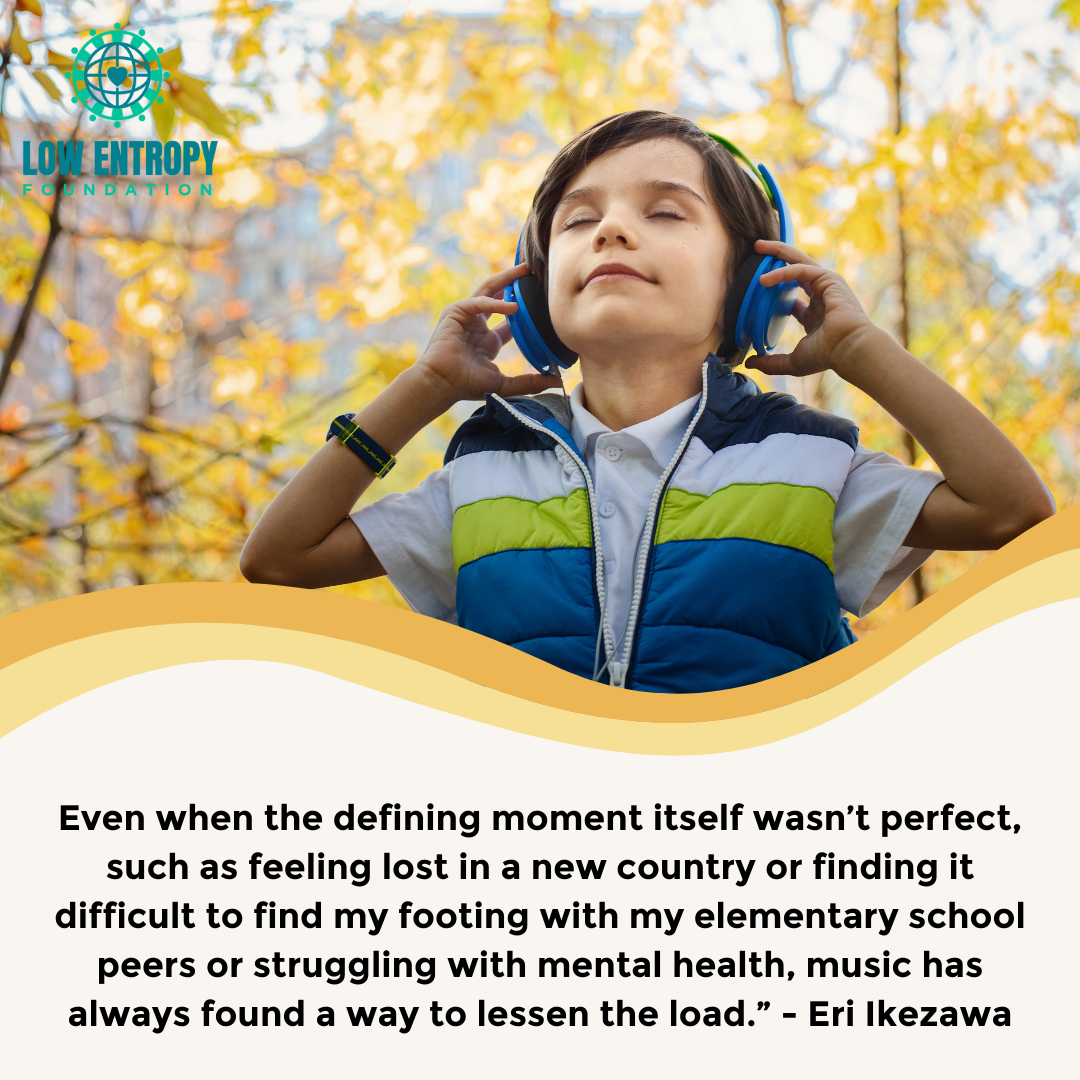Eri Ikezawa (she/her/hers), Low Entropy Volunteer Writer
Ever since its inception, media has always had an influence on its consumers. As such, it has been greatly uplifting to see a transition in positive media portrayals of marginalized communities or the use of different outlets to raise awareness of global crises.
As for me, I have found music to be one of the biggest media influences in my life; no matter how far back I go, in many of my memories there is always a faint but nostalgic sound or song in the background, giving the recollection its own individual hue.
Music has a way of filling the silence when it becomes too overbearing, a way of distracting people when they need an outlet for escapism. Or, it can help one tune in when they can’t find the words or emotions on their own. It can compound the sentimentality in the scene of a movie or emphasize the whimsicality of a commercial.
I have found all of these to be true and as such, it seems fit that I recall each significant time in my life through the musical genres that I predominantly listened to at the time. While there is an abundance of songs that might’ve elicited powerful emotional reactions within me and stoked the fire of my memories even if they deviated from the norm of a particular “era”. I designated each one as such since the majority of my musical preferences could be categorized under that genre.
It all started in Japan before my family and I immigrated. I remember singing into “microphones”—cardboard tubes from saran wrap—and dancing to Japanese music with my mom. Though the words are long forgotten, perhaps never known to begin with, the joy that imbued those moments with my mother will always remain with me.
And then once we were in Canada, my earliest childhood memories here are of my dad singing along to English ballads. Those memories, to me, are completely irreplaceable and will forever be some of the fondest I’ll hold. I will forever cherish the unadulterated warmth permeating the recollection, the simple bliss that came with pure adoration from a parental figure during a confusing and strange time of my life.
The next musical era of my life was my obsession with pop bands. As contradictory as this may sound, many associate the genre with superficial bops and beats although my discovery of pop music is incredibly meaningful to me as it was the breakthrough realization for my love of singing. I will always appreciate how my dad always unquestioningly bought me the plethora of CDs I wanted so I had something to sing along to, a panacea during preadolescent uncertainty.
It was during adolescence that I became a little more of a lyrical aficionado, wanting to sing along to music that reverberated the arduous emotions and experiences of that time. Though I would only later be diagnosed with chronic depression and anxiety, it was during my teenage years that I would feel most strongly trapped by incessant thoughts of inferiority, self-doubt and worthlessness.
Singing along to music that echoed these themes helped me feel less isolated, less alien and grounded me with the knowledge that other people struggled with similar sentiments. Even now, having learned better coping mechanisms and productive habits, I still reminisce on those songs with bittersweetness; eternal gratitude for the salvation these songs provided me, mingled with sorrow that anyone has these experiences to begin with.
There was also a period following high school that my burned CDs, iPod, and phone would include a large number of Japanese songs—a high irregularity compared to my preadolescent and adolescent years. I remember this time well—the moment where I was determined to re-learn and take pride in the first language that I’d abandoned all those years ago, desperate to fit in with my peers, a black sheep painting its wool white.
Due to my love for listening to music and singing, I found it easy to pick up new vocabulary and practice pronunciation since I could amalgamate old loves with new interests—ironically, coming full circle as I started off and ended with Japanese music.
I don’t really rely on these self-created musical eras to categorize certain periods in my life anymore, but I still find in some ways that my musical preferences are a better indicator of where I was in my life at the time than my actual age. By remembering the music that I was most interested in at the time, I can easily recall an outpouring abundance of relevant memories associated with it.
At the end of the day, the aforementioned eras of my history with music are memorable to me because of the subsequent results and have less to do with the genre itself. Every significant role music played in my life, songs in the figurative autobiographical film of my life, have always been good. Whether it was songs attached to memories of warm parental love or songs that unearthed a lifelong love for singing, it has always been good.
Even when the defining moment itself wasn’t perfect, such as feeling lost in a new country or finding it difficult to find my footing with my elementary school peers or struggling with mental health, music has always found a way to lessen the load.
Throughout time, music has—and always will—mean different things for different people. For some people, it is background noise and for others it is a necessary staple. For me, it is the bookmark between each important stage in my life.
But what remains forever consistent is the role it takes in comforting, connecting and reaching people—it heals people. Whether it’s easy listening music for BBQs or electric drops infamous of rave music, there is something for everyone.
And, in my opinion, in a world where people sometimes get lost in each other’s differences, it is beautiful that we have created something that will bring us all together.
—
My name is Eri Ikezawa and I have an extended minor in psychology and a major in linguistics. I’m still on the path to quelling questions about myself and the direction I want to head in, but in the meantime, I have always wanted to find a way to help others and contribute to a community dedicated to personal development and self-love.









